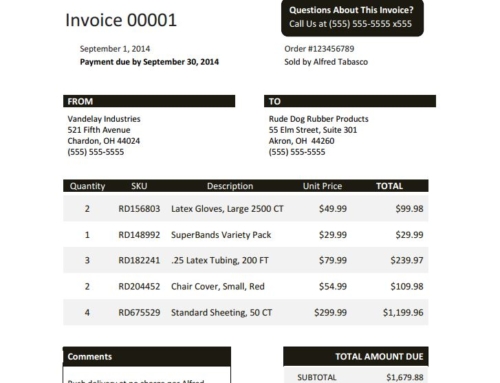Accounts receivable management is no easy process and pulling together an effective strategy means following the seven C’s of credit collections:
- Consistency
- Communication
- Context
- Clarity
- Confidence
- Collaboration
- Customer service
Below is a deeper discussion of each of these factors, why they are important, and how you can implement them to make you’re accounts receivable more effective than ever before. You may find that some of these factors overlap but that it exactly what you want in an A/R strategy- a cohesive plan that works to help you get paid faster and provide customers with a positive experience in the process.
CONSISTENCY
Consistent service to your customers and in the expectations and procedures for your staff are both extremely important when selling on credit and managing the invoices related to those sales. By having a formalized plan that your employees follow and by documenting all steps and communications along the way, you’re team will be much more consistent, effective, and efficient in collecting outstanding A/R. one way to achieve consistency both internally and externally is through a credit policy which outlines the rules and processes around selling to customers on credit as well as collecting the invoices. With a credit policy in place you can:
- Ensure continuity in the department in the event that key personnel leave the credit department.
- Help make sure all customers are treated fairly.
- Ensure consistent credit decisions are being made.
- Be used as a training tool for new sales associates and the credit and collections team.
- Be used to ensure consistency of procedure and execution between the credit department, sales, and management.
COMMUNICATION
The most effective way to increase the success of your collection efforts is by forming and executing a systematic, consistent, and controlled communications plan. How often are you connecting with customers today? Many companies send an invoice and do nothing until the invoice is late and then they start playing catch-up because they do not have the time to deal with sending letters/emails and making phone calls to customers to help avoid this situation.
Accounts receivable management software can help your collectors send the reminders and make the calls vital to the success of timely collections. The system will automatically send reminders and notifications when the invoice is created, as the due date approaches, when the invoice is past due; it can even a thank you note once the payment has been received. For each of those automated communications, you can set the rules that define when they are sent to specific customers and utilize customizable templates to support your brand and strategy.
CONTEXT
Reports tell you if an invoice is overdue and by how many days, but there is no context in a report to tell you why that is happening or how you can resolve it. That context is found in the emails sent back and forth between your staff and customers, customer payment history, and other vital pieces of information.
CLARITY
Always be clear with your customer’s right from the beginning. Make sure your invoice includes all of the necessary information they need to make a payment and be sure they understand the terms and payment due date. By sending them clear instructions on payment when you send the invoice, they could potentially pay the invoice right away. Sending unclear or incorrect information results in delays because the customer must first get in contact with your company to figure out what is going on.
CONFIDENCE
Accurate information is one of the most important factors of effective collections. A confident collector is armed with the most recent account information whenever they talk to a customer. If they are working off of week-old aging reports and spreadsheets, if the data is riddled with errors because of manual data entry, if a collector missed out on an important detail because they don’t have past communications in front of them, if you are not tracking broken promises, etc. it is very hard to be confident in their discussions with customers. Without the right information, collectors could be unnecessarily calling customers about an invoice they already paid, they could be talking about the wrong invoice, contacting the wrong person, etc. Accounts receivable management software automatically pulls in every communication, tracks every promise, and gives collectors all of the critical information they need in one place so they are confident in their communications with customers.
COLLABORATION
If a customer calls in to talk about an invoice, what happens if their assigned collector is sick or on vacation? Who else has access to the information necessary to handle the phone call? Are all of the past communications locked away in the collectors email inbox? Jotted down on a note pad in their office? Utilizing a system that automatically pulls all communications and account information into one place makes collaboration fast and easy so your entire team can work toward the same goal.
CUSTOMER SERVICE
Accounts receivable is an accounting function but it’s important to look at it as a critical customer service function too. Each contact you have with a customer and every experience they have plays into their decision to work with your company again. Accounts receivable is usually the last contact they have with your company, so it will be at the forefront of their mind when they consider working with your company again in the future. By making the payment process fast, simple, and stress free, your collectors are playing a large part in driving repeat sales, not to mention helping your company get paid faster.




